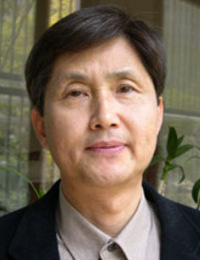 |
Gwan Yong-nip, Professor of International Affairs at Kyungsung University
Meetings between the presidents of Korea and the United States always make the front page in Korean newspapers. In the U.S., however, the news is found in a corner of the international section. The imbalance in the way each country sees the other is too great, even when you consider the difference in their national strength. Nevertheless, that imbalance has been a persistent characteristic of the relationship since Liberation. You could see it at the summit last week between U.S. president George W. Bush and Korean president Roh Moo-hyun. The meeting took place amidst rumors of the possibility North Korea might engage in a nuclear test to confront U.S. and Japanese financial sanctions, but even before the two leaders met, everyone already knew that the U.S. and Korea would have a difficult time agreeing on how to resolve the North Korean nuclear issue. Still, the way the Korean government and ruling party assessed the meeting - which produced no joint statement or agreement on how to approach the issue - differs considerably from that of the U.S. The U.S. did what it could to put on a diplomatic show to keep the summit from being the last step in an "amicable divorce," which is what some newspapers so unamicably predicted it would turn out to be. The U.S. government and media saw it as a ritual event designed to quiet differences on the North Korean nuclear issue, a meeting packaged in well-wishing small talk. The Korean government and ruling Uri Party, however, consider it quite an accomplishment to have Bush verbally pledge to continue to maintain U.S. forces in Korea and support it in times of military conflict. They praise Bush for ever so kindly interfering in Korean politics when he helped Roh by saying the question of transferring wartime operational command should not be a "political issue." Indeed, Roh’s admninistration seems happy at the fact Bush’s comments will help quiet a domestic political dispute. Instead of being worried about the fact that the two sides did not figure out what they are going to do about the crisis on the peninsula at a time when Pyongyang is about to test a bomb, the Roh administration seems to be congratulating itself on the fact it got a guaranteed check, from a U.S. president who will be in office another two years, that will quiet the controversy over operational control of the Korean military. It is all an example of how, whether a Korean is pro- or anti-American, he sees America exclusively through the framework of domestic Korean politics, while the U.S. sees Korea as merely a foreign policy counterpart, and how that asymmetry is the product of more than just how powerful each country is as a nation. This summit was not about diplomatic small talk between two national leaders. As was the case at the summit in June of last year, U.S. vice president Dick Cheney, chief of the Washington hard-liners as he is, showed up only at mealtime and not at the actual summit meeting. The result is that "Cheney’s nonattendance" became the indicator of the relationship. As long as Cheney’s empty seat symbolizes the way the U.S. and Korea are out of sync with one another, there is no use in Korea’s president meeting directly (as he did last week) with the the U.S. treasury secretary, veritable field commander of American financial sanctions against Pyongyang.Cheney’s absence last year was also a message, one that said there is no possibility that sanctions are going to be relaxed. That being the case, it becomes all the more likely Pyongyang is going to make the hard-line maneuver of testing a nuclear device, since financial sanctions are no different from military action in the sense they threaten the North Korean government’s very existence. China attempting to persuade Pyongyang to refrain from a nuclear test remains a variable in play, but the South Korean government’s engagement policy will simply not be enough to stop the North’s "Songun diplomacy," especially when the North has chosen a survival strategy of arming itself with nuclear weapons. The U.S. is hoping that if Pyongyang goes through with such a test it will do irreversible, decisive damage to the legitimacy of the North’s claims regarding its programs as part of its "self defense." At the end of it all, though he may be injured, it is the strong who claims victory. What strategies does South Korea have left, when the basic premise of its policy of "peace and engagement“ - namely a non-nuclear Korean peninsula - would be blown away by a nuclear test in North Korea designed to be a response to the U.S.? The South cannot face the U.S. or the North on equal footing when it is so short-sighted at a summit meeting as to be interested in operational command instead of denuclearizing the peninsula - a subject for which there is never enough time to talk about to begin with. In that sense, the real summit meeting is not yet over. It has only now just begun.





